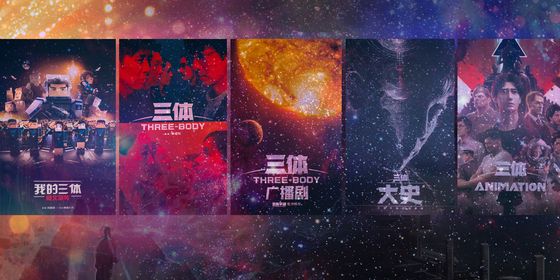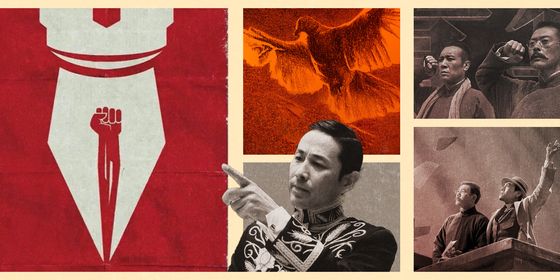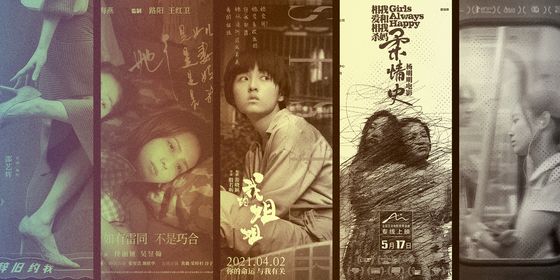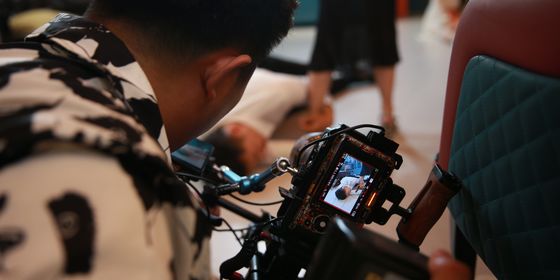Do female characters in Chinese cinema and TV pass the Bechdel test?
The camera follows the man’s gaze as it falls first on the woman’s neck, then down to her bare legs. It lingers over her messy hair and slightly parted lips, ending on her hands, which are putting sugar-coated fruits on bamboo sticks. Feeling his presence, she turns her head back, and the two major characters lock eyes for the first time.
This scene, shot using the “male-gaze,” is from the TV show A Lifelong Journey, which aired on state broadcaster CCTV in January this year and explores one family’s experience of China’s momentous historic changes in the industrial Northeast. Despite considerable hype from the network and high ratings—it received the highest viewer figures of any program on the CCTV-1 channel over the last three years, and a rare 8.1 rating out of 10 from hard-to-please viewers on reviews site Douban for its talented cast and tear-jerking script—not everyone is so enamored with the show.
Ye Yingying, a public welfare lecturer on female and elderly psychology, is one of a number of people to have called out the objectification of A Lifelong Journey’s female characters, especially Zheng Juan, subjected to the male gaze in the scene above. “She would always endure and accept everything without complaint, and always put all her effort into taking care of her children and in-laws,” says Ye. She feels that the character is a deliberate “morally perfect symbol” intended to model certain behaviors to women, such as “[having] no ego, always enduring, never rebelling.”
Ye’s comments could be applied to any number of Chinese TV series which have been slammed on review sites in recent years for their one-dimensional portrayals of female characters. Decades of stereotypical female characters in film and TV, driven by social expectations, are weighing on female audiences and industry insiders who are now seeking alternatives.
In March, viewers criticized Tencent Video and other video streaming platforms for using terms such as “plastic sisterhood” and “sisters who hold grudges” to promote the 2018 HBO series My Brilliant Friend in China. Fans decried the use of competition and negativity as selling points for a drama series that is focused on the companionship and mutual empowerment between its two female leads.
Recent years have seen an uptick in the number of shows purporting to tell women’s stories, with one notable example being the Vicki Zhao-helmed Hear Her (2020) drama series, which examined issues around domestic abuse, beauty standards, and mid-life crises.
Yet efforts at portraying more female viewpoints have not always been successful. Film director Li Yingyi tells TWOC that female characters that are presented with a strong individualist streak are still largely lacking because mainstream Chinese culture is so focused on family values. “Not as many people like to watch [female individualists], which leads to less market investment, fewer writers creating such characters, and in the end, viewers having fewer opportunities to see these characters [on screen],” says Li, whose film Shall We Talk, following a female teacher grappling with a student’s death, was screened at China’s FIRST International Film Festival in 2019.
Nü Perspectives: Striving for Better Female Characters on Chinese Screens is a story from our issue, “Lessons For Life.” To read the entire issue, become a subscriber and receive the full magazine.













